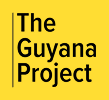Strengthening Guyana’s Future Through Risk Mitigation, Financial Responsibility, and Entrepreneurial Legacy
Guyana is reshaping its economy through agriculture, finance, and entrepreneurship. Rice, now the country’s leading agricultural export, benefits from a new government-backed crop insurance programme supporting 6,000 farmers, echoing U.S. models that reduce risks from prices, pests, and climate shocks. At the same time, oil-driven growth demands stronger financial systems aligned with global compliance standards like OFAC. Together with lessons from pioneering entrepreneurs, these initiatives strengthen resilience, safeguard credibility, and position Guyana for greater stability and global economic integration.
U.S. Ambassador Flags Risks Over Sanctioned Candidate’s Political Aspirations

The U.S. Ambassador to Guyana expressed concern over a sanctioned businessman’s political ambitions, warning it could strain diplomatic ties and deter U.S. investment. Sanctioned by OFAC for alleged gold smuggling, tax evasion, and corruption, the individual’s bid for parliament has drawn scrutiny. The ambassador noted potential risks for U.S. engagement and private sector partnerships if such a figure assumes office. This development places Guyana’s political landscape under international watch, raising questions about governance, investor confidence, and strategic alliances.
Guyana Advances Toward Maritime Modernisation with New Port Legislation
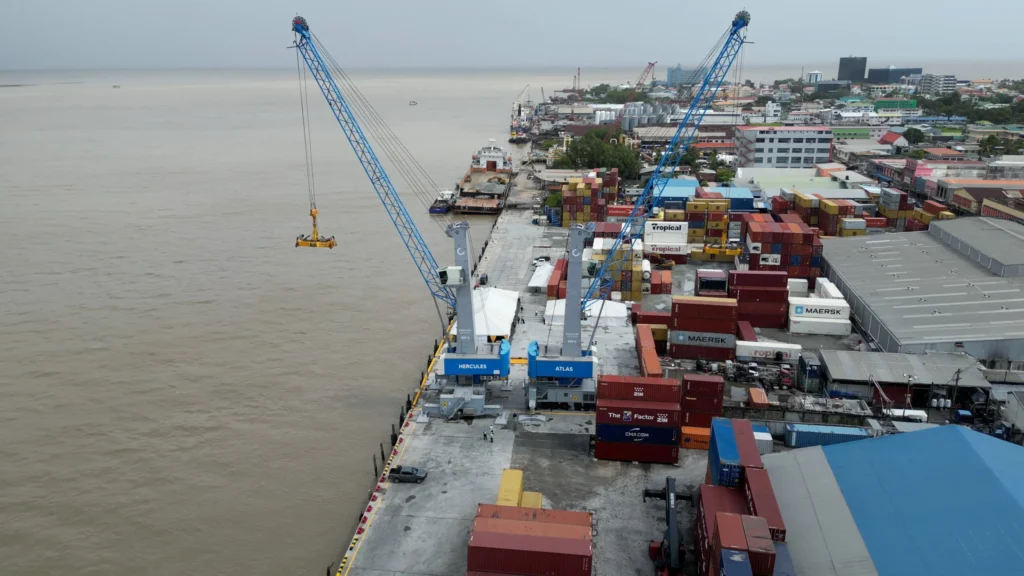
Guyana’s maritime sector is undergoing major reform as marine traffic has quadrupled in five years. A new Port Act will replace outdated laws, establish an independent Port Authority, and align operations with global standards. Investments include deepening the Demerara Harbour and removing wrecks to reduce delays and costs. Digitisation will streamline logistics, while expanded capacity supports offshore, agricultural, and extractive industries. These reforms strengthen Guyana’s position as a regional logistics hub and secure long-term trade competitiveness and economic resilience.
Region 5 Agro-Processing Growth Powers Food Sovereignty Push
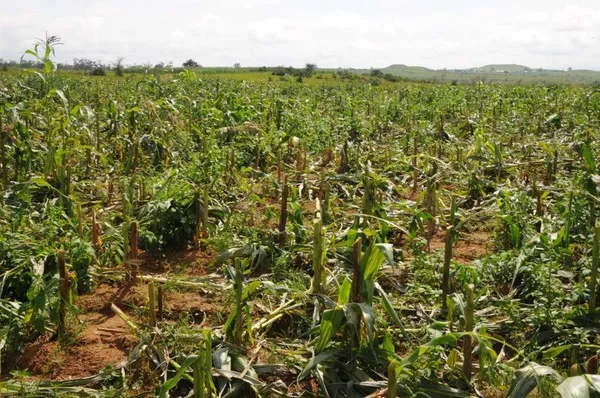
Region Five has become central to Guyana’s food security strategy with over 35 agro-processing facilities established since 2020. These hubs transform local crops into value-added products, reduce spoilage, and boost farmer incomes while creating jobs for women and youth. By promoting local processing, the region reduces import dependence, expands export potential, and builds food resilience. Combined with training and capacity-building, these initiatives empower communities, strengthen rural economies, and position Region Five as a model of sustainable agricultural innovation.
Region 4 Housing Expansion Reduces Overcrowding and Builds Stronger Communities
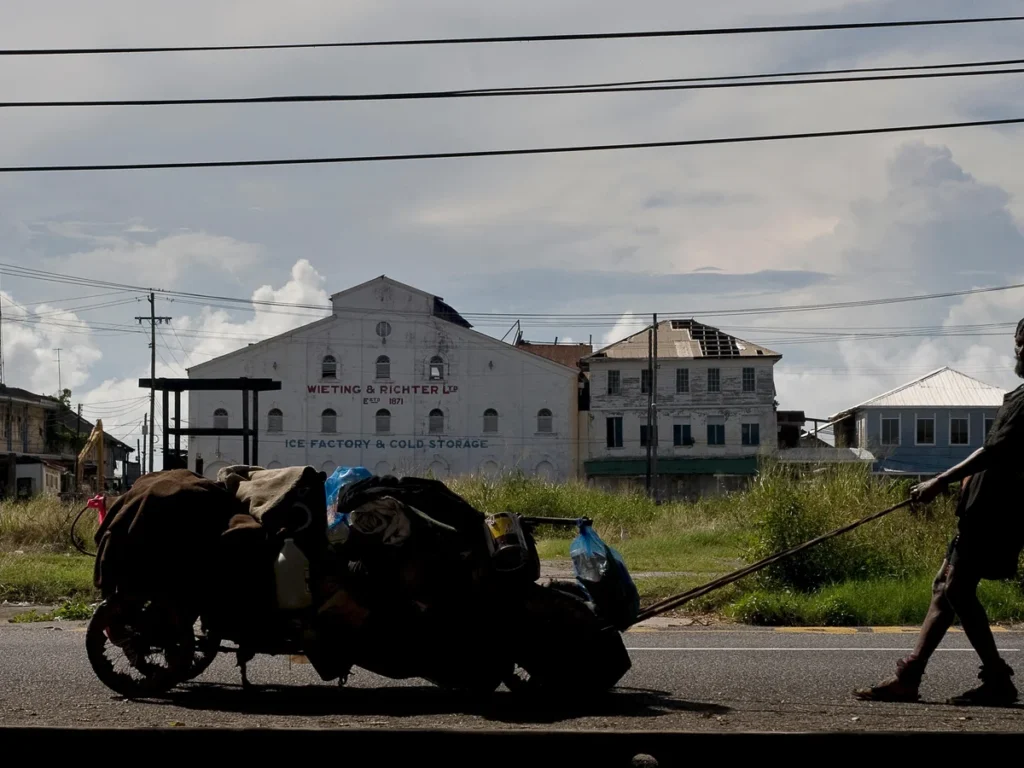
Since 2020, Region Four’s housing programme has allocated over 14,000 house lots, easing overcrowding in Greater Georgetown and beyond. Families benefit from titled land, modern infrastructure, and properly planned communities with roads, utilities, and future schools. The initiative boosts construction jobs and local business while ensuring equity for young professionals, single parents, and low-income families. Beyond infrastructure, it fosters stability, independence, and hope. These house lots symbolize transformation—turning land distribution into community building and improving lives across the region.
Expanding Education and Skills for a Modern Economy
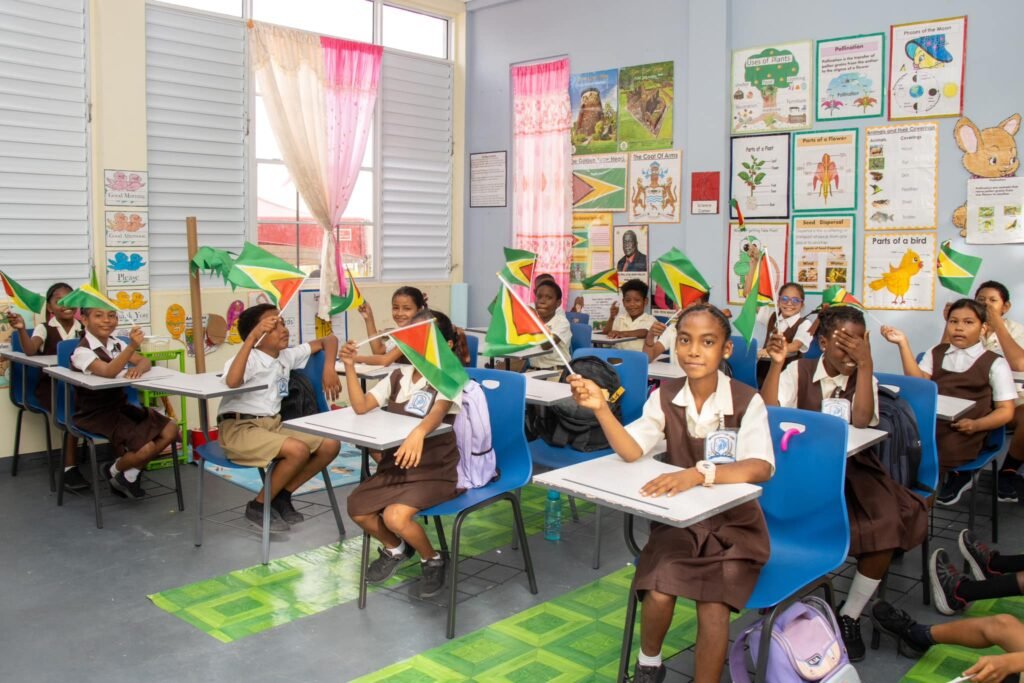
Guyana’s education plan focuses on free access at all levels, including tuition-free university, supported by expanded GOAL scholarships. Digital schools with AI-powered learning will personalize education, while transport grants ensure rural students can attend classes consistently. TVET institutions are being upgraded with modern labs to meet industry needs, and 100 new schools will expand capacity and improve quality. Together, these initiatives aim to raise standards, foster innovation, and prepare a skilled workforce for a knowledge-driven global economy.
Driving Economic Growth through Diversification and Industrial Expansion

Guyana’s development plan focuses on economic diversification, industrialisation, and business-friendly policies to build long-term prosperity. Key initiatives include opening 100,000 acres for agriculture, backed by infrastructure upgrades to boost food security and resilience. A new Development Bank and tax incentives will support small businesses, while the energy sector, with oil and gas-to-energy projects, promises affordable power and exports. Industrialisation, especially in Berbice, aims to create jobs and enhance competitiveness, ensuring sustainable growth that benefits all communities nationwide.
Joint Services Reaffirm Commitment to National Security and Public Service

Guyana’s Joint Services have reaffirmed their role in safeguarding sovereignty, law, and citizen safety through professionalism and discipline. Beyond military duties, they support civil authorities, disaster response, and public order, often under difficult conditions. While questions have arisen about impartiality, the Services stress their commitment to fairness and serving all Guyanese equally. As the nation develops, emerging challenges such as climate risks, cyber threats, and transnational crime highlight the need for continued collaboration, trust, and a strong security sector.
Risk Management in Oil Economy

The PPP/C has launched its manifesto themed “One Country, One People, One Future – Forward Together for a Better Guyana”, focusing on balancing social development with oil revenue management. It warns against over-reliance on petroleum earnings and Dutch Disease, instead promoting diversification in sectors like agriculture, hospitality, and biotechnology. The plan emphasizes climate resilience, infrastructure upgrades, and fiscal discipline to withstand global shocks. Overall, it advocates responsible oil wealth use, economic stability, and long-term growth for a secure future.
Region Nine to Benefit from Expanded Support Programmes

Region Nine residents are set to benefit from initiatives aimed at boosting income, education, and living standards. Commitments include zero-interest business loans, grants for women and youth, and housing support for Amerindian villages. Agriculture will be strengthened through inputs and food-processing factories, while scholarships and improved Wi-Fi expand educational access. Cash grants will continue supporting families, stimulating local economies. Collectively, these measures aim to empower communities, promote entrepreneurship, and ensure Region Nine’s fuller integration into Guyana’s national development framework.
